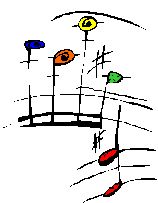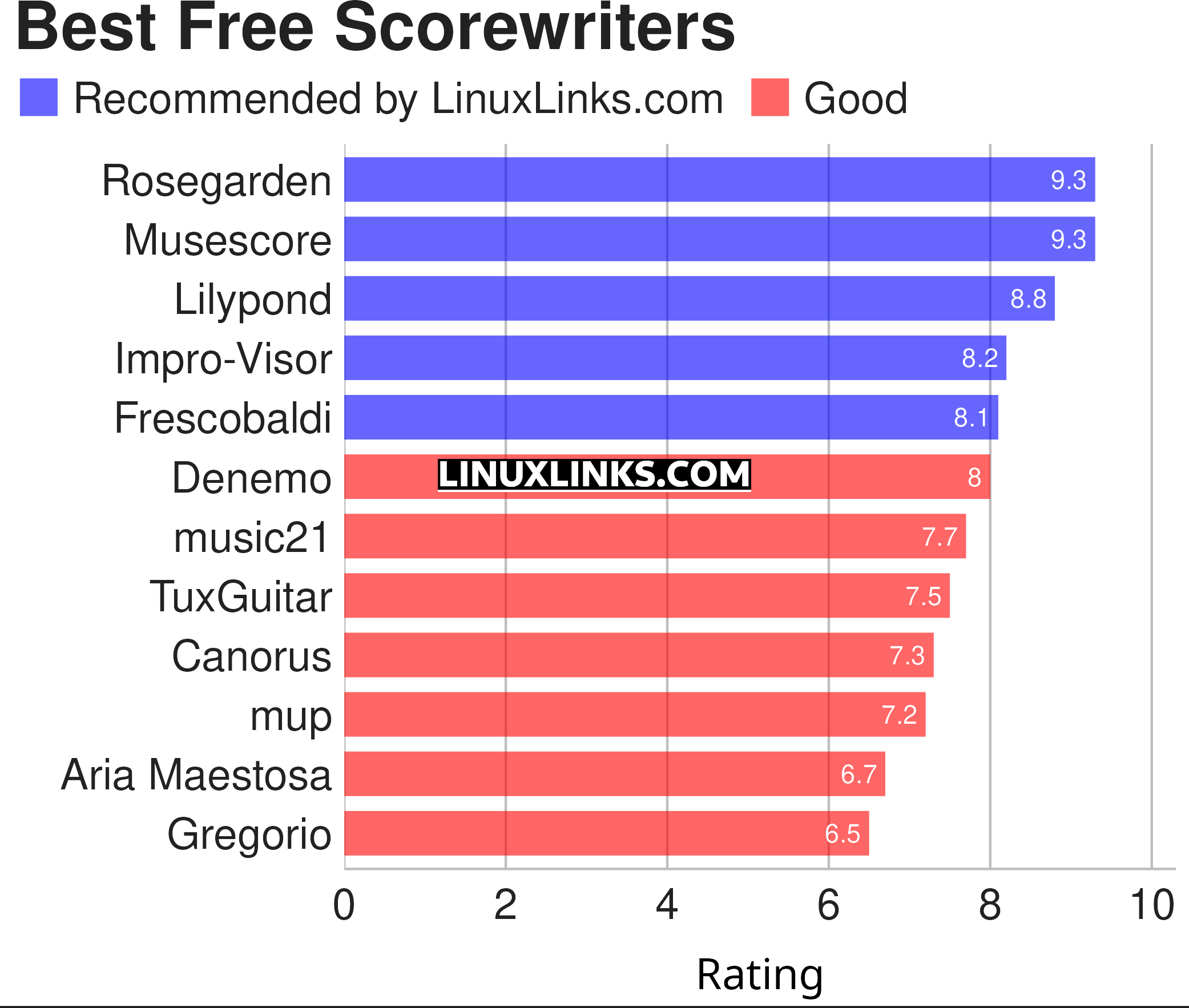A scorewriter (often known as notation software or music notation processor) is software used with a computer for creating, editing and printing sheet music.
For a musician to be able to read, understand, and play music, a composition needs to be in written form. A system of notation is essential for musicians to be able to play music as intended by the composer.
In the field of music composition, Sibelius and Finale are held in high esteem. These scorewriters are widely used by composers, songwriters, and arrangers for creating sheet music, including the score for an ensemble and parts for individual musicians. Unfortunately, both Sibelius and Finale are proprietary software. They are very expensive applications; the cheapest perpetual license for Sibelius sets you back hundreds of dollars. And neither application is available for Linux.
Fortunately, there is a wide range of open source scorewriters which are supported in Linux. This article recommends cost-effective alternatives to Sibelius and Finale. The software featured here is released under open source licenses, all are available to download at no charge, and generate music scores which are engraved with traditional layout rules.
 This article does not limit itself to software with a graphical user interface. One of the benefits of using software which doesn’t depend on a graphical interface is that you can create and edit music on any type of device, even small handheld devices.
This article does not limit itself to software with a graphical user interface. One of the benefits of using software which doesn’t depend on a graphical interface is that you can create and edit music on any type of device, even small handheld devices.
To provide an insight into the quality of software that is available, we have compiled a list of 12 high quality free Linux scorewriters. Whatever your requirements, one or more of these applications will meet your composition needs.

Let’s explore the 12 scorewriters. Click the links in the table below to learn more about each program.
| Open Source Scorewriters | |
|---|---|
| Rosegarden | Sophisticated MIDI (and audio) sequencer and notation editor |
| Musescore | Graphical WYSIWYG music score typesetter |
| Lilypond | Produce musical scores that are engraved with traditional layout rules |
| Impro-Visor | Educational program designed to help musicians compose and hear solos |
| Frescobaldi | LilyPond sheet music text editor for KDE4 |
| Denemo | Musical score editor intended primarily as a frontend to Lilypond |
| music21 | Toolkit for computational musicology |
| TuxGuitar | Multitrack tablature editor and player writen in Java-SWT |
| Canorus | Graphical music score editor written for the Qt4 toolkit |
| mup | Very feature-laden application for producing printed music |
| Aria Maestosa | Midi sequencer/editor |
| Gregorio | Tools for Typesetting Gregorian Chant |
This article has been revamped in line with our recent announcement.
 Read our complete collection of recommended free and open source software. Our curated compilation covers all categories of software. Read our complete collection of recommended free and open source software. Our curated compilation covers all categories of software. Spotted a useful open source Linux program not covered on our site? Please let us know by completing this form. The software collection forms part of our series of informative articles for Linux enthusiasts. There are hundreds of in-depth reviews, open source alternatives to proprietary software from large corporations like Google, Microsoft, Apple, Adobe, IBM, Cisco, Oracle, and Autodesk. There are also fun things to try, hardware, free programming books and tutorials, and much more. |

You’ve omitted MusiXTeX (and various pre-processors). Information at https://icking-music-archive.org/software/htdocs.
That’s a reasonable recommendation providing the user is familiar with TeX. And I didn’t want the compilation to be heavyweight in applications that require extensive TeX knowledge. Thanks for the suggestion.
I seriously doubt any professional musician would want to learn TeX – I wouldn’t want to inflict that on my worst enemy.
Please remove Gregorio.
For writing books, booklets and scores I use MusiXTeX. But for studying I prefer to write with a program that has sound output.
Have you looked at PMW by Philip Hazel? It has its origins in PMS for RISC OS, and it’s input script is really simple to get to grips with.